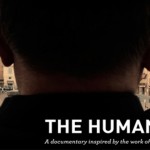The star set of common interview questions – how to perform properly
Professional success, and the entailed performance, both start with the standard issue interview. To this effect, there is a set of seemingly benign, rudimentary questions that can deviate a potentially good career trajectory, and which the interviewee needs to navigate cautiously. The smart way to overcome this obstacle, and have the best performance, is to focus on the fine details, the allegedly unimportant issues and develop a best strategy for personal presentation. 
Recruitment, employment and internships invariably end up in an interview between the aspiring and the employer. Interviews can make or break beautiful career opportunities, so they need some tender preparation time, in order to deliver the best performance. This means a candidate needs to do his homework, acknowledging that, in this context, performance means presenting yourself pertinently. And, usually, what interviewers go for is not a reiteration of the obvious, like a person’s professional background that can be deduced from its CV, but questions oriented towards the candidate’s fitness for the job.
Here, the accent will veer from one’s previous performance record and go into a here-and-now space, where one needs to herald his or her traits. This stifling area is the one where interviewees will be asked about their personal experience and expectations, in the aim of identifying their motivation, relational pattern, problem-solving strategies, accomplishments and self-evaluation.
HR professionals know how to hunt for just the details they need to make an informed recommendation. Whether enticing, empathic or firm, interviewers will succumb to a questioning line that contains a few key clichéd questions, which need serious forethought.
Following is a star set of stereotype questions that one would find in interviews, and what experts believe candidates should read into them, in order to attain the best results.
Looking at a 2014 article, pinned for Forbes by career transition expert Melissa Llarena, we find 5 of the most common, and tricky, interview questions:
- “Tell me about your experience at Company X” – where the interviewer screens for the fitness between one’s previous experience and the position up for the taking;
- “What is your biggest professional accomplishment to date?” – the question seeks to make a connection between previous success and future performance potential;
- “How would people you work with describe you?” – that looks into a candidate’s ability to manage working relationships;
- “What is your greatest weakness” – where the author states that honesty, tact, self-awareness and endeavors for improvement are the key questions;
- “Why are you the best person for this position” – is the question for personal strengths that promote you for the job at hand.
The list goes on with items recommended by Michael Page, one of the world’s leading professional recruitment companies, in the Top 10 interview questions…and how you should answer them article. Here are some excerpt questions from the article and some insights about what they really screen for:
- “Are you happy with your career to date?” – self-esteem and professional aspirations;
- “What is the most difficult situation you have had to face and how did you tackle it?” – the candidate’s definition of “difficult” and what problem solving strategies they use;
- “What do you dislike about your present job?” – a delicate question where moderation is required, along with projecting an “air of someone who takes problems and frustrations in your stride”;
- “Why do you want to leave your current employer?” – a challenge, where negativity, criticism and salary issues should be avoided, for a more self-development oriented approach.
To all the above, you may get the ever-so-popular projective questions, like “Where do you see yourself in X years?” or the straight-forward salary expectation questions. According to a National Career Service article, another addition would be the odd, unusual questions, like “If you were an animal, what type of animal would you be?”, that look for quick and efficient replies.
With some variations, different wording, yet the same intent, the above would constitute the recurrent sorts of questions one would expect to find in an interview. Given their popularity, showing up unprepared for them can be a major deal-breaker, severing a budding career opportunity from its roots.
Personal performance, or any other for that matter, means preparation, delivery and outcome. Professionalism and performance call for attention to detail, foresight and strategic thinking, as well as the ability to acknowledge potential risks and rewards that lay in aspects others might deem “obvious”.
References:
- Llarena, M. (2014), How to answer the five most common interview questions, Forbes 2014
- Michael Page (2014), Top 10 interview questions…and how you should answer them
- National Carers Service (2012), Top 10 interview questions
Image source:

Tags: Human Resources performance, Interview, Recruitment






